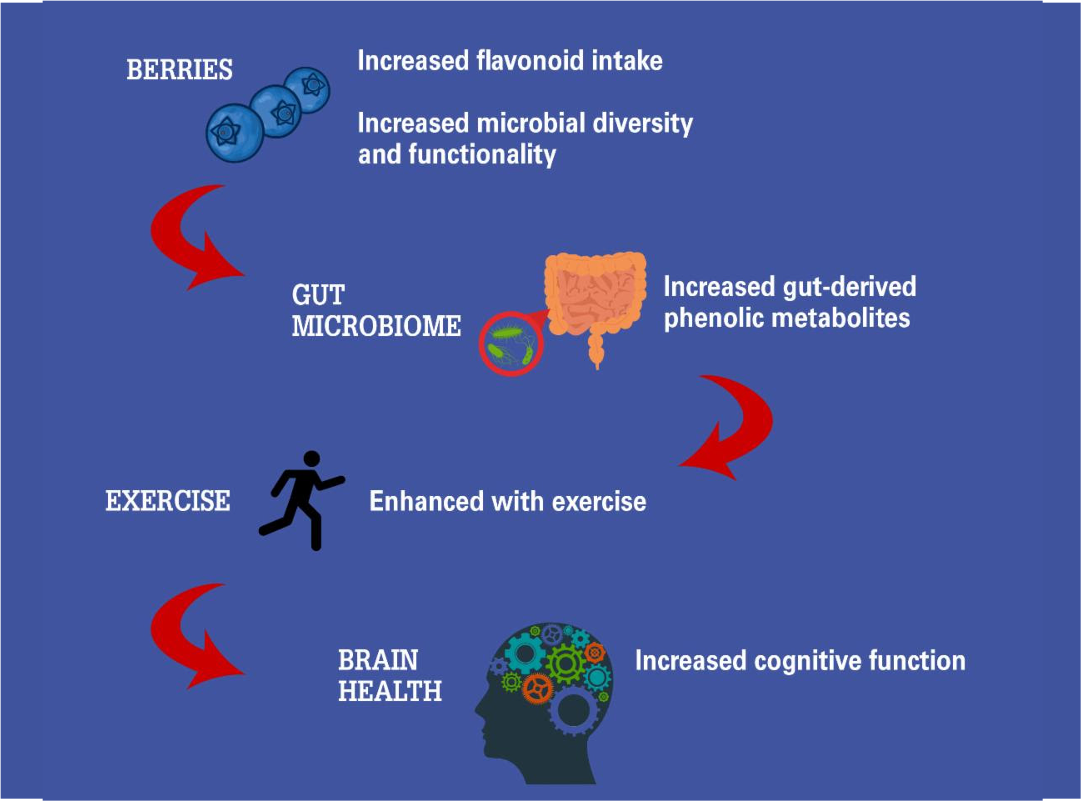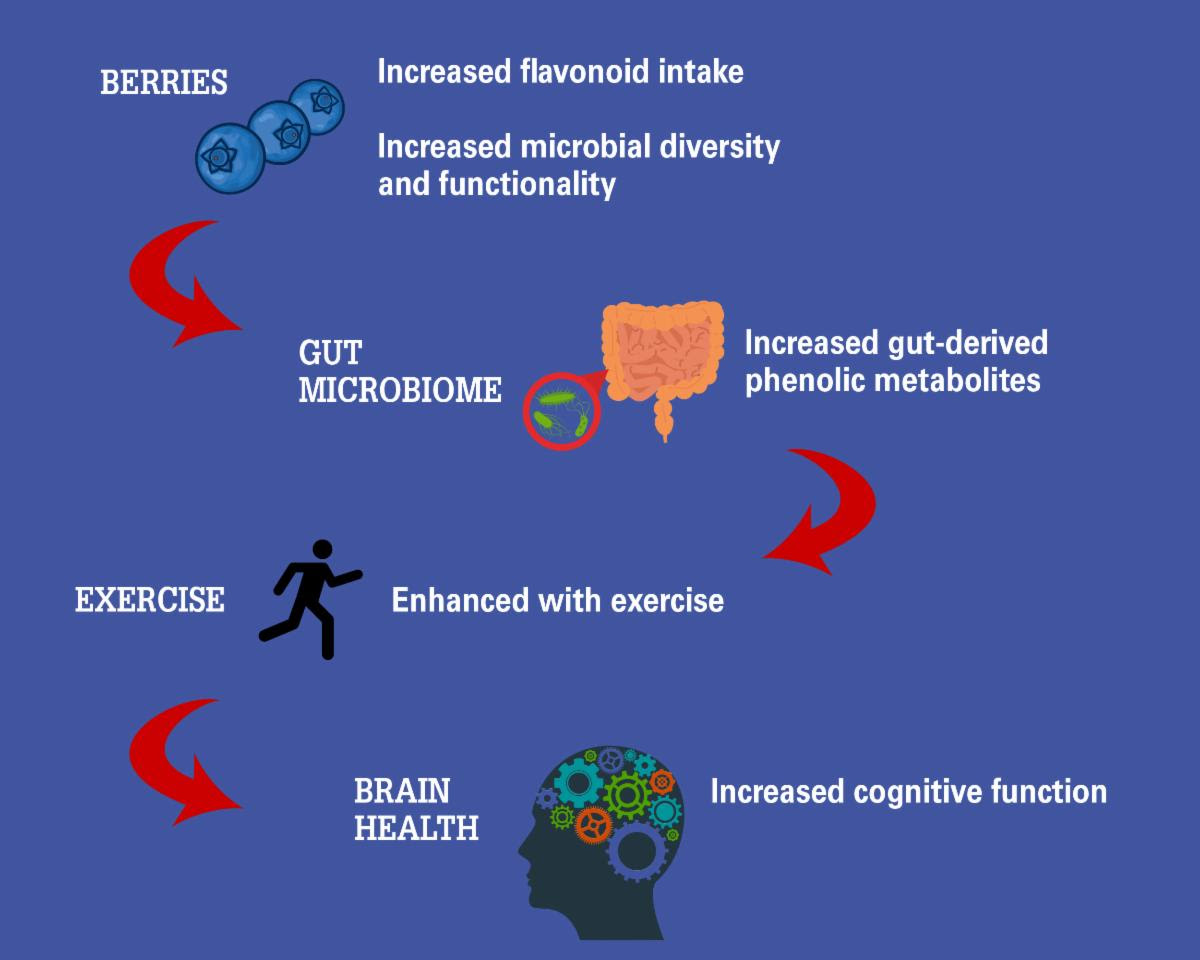Do berries, exercise and the gut microbiome synergistically support brain health?

A group of collaborators from NC State University, UNC-Chapel Hill and Appalachian State University recently published a review article looking at the connections between brain health and flavonoids (in foods like tea, berries, and legumes), exercise, and the gut microbiome.
You can use these connections to further the conversations with your patients about their lifestyle choices and prevention and treatment of their diagnoses.

As the brain ages, there are several pathways that may cause decline in function.
- Inflammation can occur in the brain (neuroinflammation) just like in any other part of the body. Chronic inflammation causes damage to neurons and synapses. This inflammation can lead to decreased cognition and increases in psychiatric illnesses.1
- Oxidative stress caused by cumulative environmental factors can cause age related changes in the brain.2 As reactive oxygen species attack cells and tissues, the brain becomes less resilient and processing can slow.
- Decreased blood flow will cause age related changes in the brain. Atherosclerosis caused by hypertension, diabetes and cardiovascular injury will often lead to decreased perfusion of tissues, including vital brain tissue.
Berries
Flavonoids are powerful phytochemicals that can help mitigate damage to cells. It is particularly important to note that the metabolites of many of the flavonoids can cross the blood-brain barrier and affect the tissues of the brain.2 Other research has confirmed that flavonoids found in food (including cocoa and cranberries) have improved cognition in older adults.3,4
Exercise
The authors point out that a variety of studies have shown that exercise can have acute effects on brain function, including improved mood and sleep, and chronic effects, including attention and memory.2 Exercise also increases the rate at which we breakdown and integrate the compounds from foods into circulation.1
Gut Microbiome
The bacteria that live throughout the human GI tract work together to help break down food, make essential vitamins, fight disease, and, as it turns out, improve cognition. When we have a community of good bacteria in the gut, we can convert the flavonoid chemicals into their metabolites that work as active anti-inflammatories and antiaggregants in the brain.1
Berries + Exercise + Gut Microbiome
The exciting piece is the connection between exercise, flavonoids, and the microbiome that help provide a cumulative effect on the brain. The gut bacteria break down the flavonoids into the metabolites that work through several pathways to decrease inflammation and oxidative stress. Exercise helps promote an increase in the metabolite concentration at the sites of neuroinflammation.
The bottom line for patients is that 150 minutes of exercise per week not only helps metabolism and fitness, but also influences the way a healthy diet, rich in flavonoids, can help slow the effects of aging on the brain. You can prescribe berries coupled with 150 minutes of weekly exercise, for example, to a patient with a family history or concern for neurodegeneration.
- Categories: